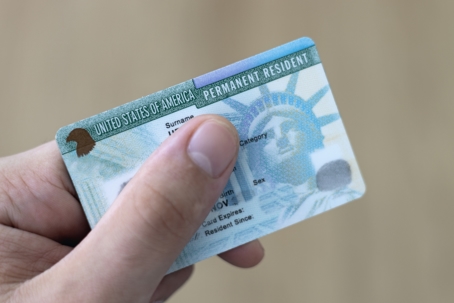The U.S. marriage-based Green Card interview is one of the most critical steps in the immigration process for spouses of U.S. citizens or lawful permanent residents. U.S. Citizenship and Immigration Services (USCIS) conducts this interview prior to adjudicating your case to determine whether your marriage is genuine and not entered into solely for immigration purposes.
At Verma Law Firm, we’ve successfully guided hundreds of couples through the Green Card application and interview process, and preparation is key. Below, we’ve outlined what to expect and how to best prepare for your Green Card marriage interview.
1. Understand the Purpose of the Interview
The USCIS officer’s main goal is to verify that your marriage is bona fide. This means they want to see evidence that you and your spouse share a real life together — emotionally, financially, and practically from the time that you started your relationship to present. They’ll evaluate your relationship history, current living situation, and plans for the future.
2. Review Your Application Thoroughly
Before the interview, both spouses should review all submitted documents, including:
- Form I-130 & Form I-130A (Petition for Alien Relative)
- Form I-485 (Application to Register Permanent Residence)
- Form I-864 (Affidavit of Support)
- Any supporting evidence that was submitted
Make sure both of you are familiar with the contents — especially dates and facts about your relationship.
3. Organize Your Documentation
Bring originals and copies of all key documents, including:
- Marriage certificate
- Passports and government-issued IDs
- Birth certificates
- Proof of joint residence (lease, mortgage, utility bills)
- Joint bank accounts, medical/auto/life insurance policies showing spouse as beneficiary or joint holder of policy, credit card statements
- Photo album with photos together from different time periods and events from the start of your relationship to present
- Air tickets from trips taken together
Organize your documents in a clean folder or binder to make it easy to present during the interview.
4. Prepare for the Interview Questions
USCIS officers typically ask both spouses questions. Be ready to discuss:
- Questions about your relationship
- How you met
- How the relationship progressed
- Who asked who to marry
- Have you met each other’s parents etc
At Verma Law Firm, we prepare our clients for the interview through a mock interview so you can practice responding to the types of questions that will be asked.
5. Dress and Act Appropriately
This is a formal government interview. Dress neatly and professionally, arrive early, and be respectful to the officer. Bring only what is necessary and avoid bringing large bags or unnecessary electronics.
6. Be Honest and Calm
If you don’t remember something, it’s okay to say so. Don’t guess or make up answers. The officers are trained to detect dishonesty, and inconsistent answers can lead to delays or denials. Stay calm and answer questions to the best of your ability.
7. Know What Happens After the Interview
At the end of the interview, the USCIS officer may:
- Approve the Green Card on the spot (if the interview is conducted by a senior USCIS officer)
- Request more evidence, USCIS will give 30 days to mail in the evidence
- If the interview is by a junior USCIS officer, he/she may state that everything looks good, however they have to run the case by a supervisor for a final decision
8. Work with an Experienced Immigration Attorney
Having an attorney can make a significant difference. At Verma Law Firm, we help you prepare and submit a strong Green Card application, conduct mock interviews, and ensure you're ready to present your case clearly and confidently. If complications arise, we’re here to advocate for you.
Need Help Preparing for Your Interview?
Contact Verma Law Firm today to schedule a consultation. With years of experience in marriage-based Green Card cases, we’ll guide you every step of the way — from petition to approval.
Disclaimer: This blog post is for informational purposes only and does not constitute legal advice. For personalized guidance, consult with an immigration attorney.

